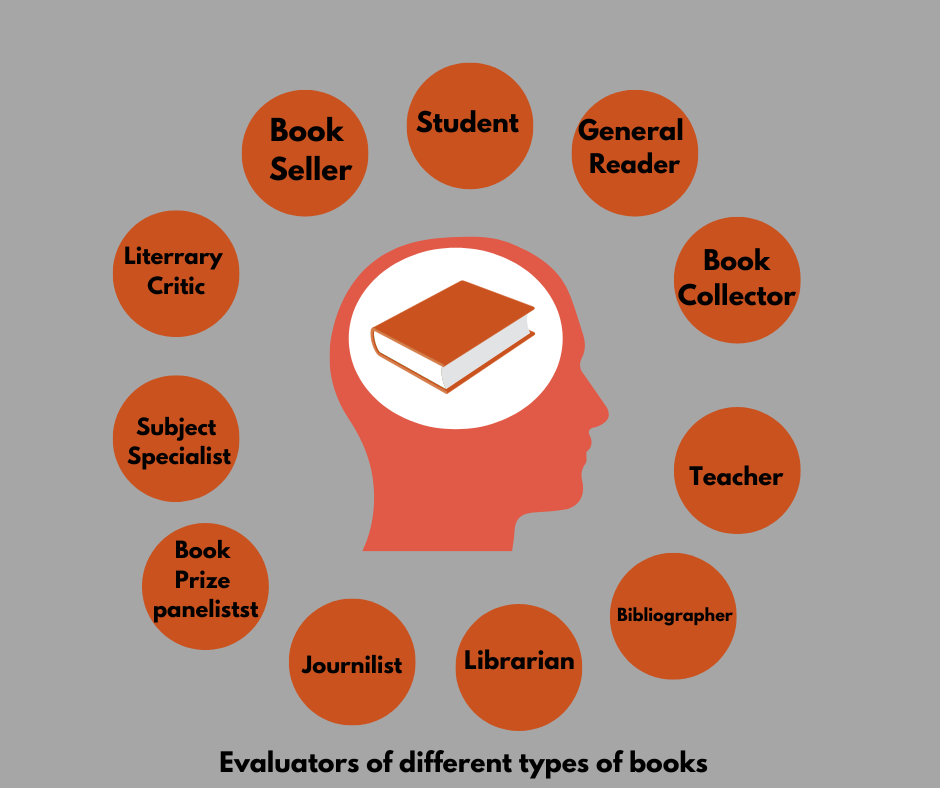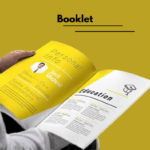Evaluation books play an important role in this life. Appreciation stands the book brings success and reputation in life. Authors, publishers, booksellers, and libraries depend on the assessment. Hence, book evaluation is as important as it is essential.

Below is a description of the different types of book evaluators:
- Bookseller: The main objective of a bookseller is to market and sell books quickly. Booksellers evaluate books based on the book’s content and author popularity. Just as books on popular topics sell quickly, books by popular authors don’t last long in stores. The bookseller emphasizes recent publications entirely. Bookseller’s criteria for evaluating popular writing.
- Students: Students read more books than their teachers approve. The criteria for their evaluation are the books recommended by the teacher. Besides, books that give an easy idea of the subject are given importance. They prefer books written according to the syllabus or books that will help in the exam.
- General Reader: The general reader refers to readers of all ages. What they value is what gives them pleasure or informs such books. The reader prefers his personal preferences and tastes. Most general readers don’t like complicated books. They have a general idea about a book that is also influenced by friends. Generally, they prefer their favorite subjects.
- Book collectors: People whose profession is collecting books buy books to enrich their personal collections. They can take pride in their collection because they collect valuable, very old, and rare books that are out of print. Apart from that, they collect important publications on a particular subject: books that arouse new responses, books of the first revision, books of a particular author, their criteria are rare books. They give importance to the critics of the books published by newspapers.
- Bibliographers: Their main aim is to prepare subject-wise lists and to collect all materials on a subject for their evaluation, from which subject bibliographies or other bibliographies are prepared.
- Literary critics: Although their main focus is limited to poetry, drama, novels, etc., they also write and criticize books on their subject. They mainly compare, analyze, and evaluate the merits and demerits of literary subjects. Their main purpose is to discuss book chapters that will be of use to readers and librarians. They examine the details of the book, comment on content, author, literary value, etc., and discuss comparisons with similar books.
- Subject Expert: Especially professionals, scholars, researchers, and teachers give scholarly opinions about their subject. Subject matter experts criticize the specialist level of books written on their own subject, profession, or scholarship. They are highly rated and highly regarded by experts.
- Awarding Committee: The awarding committee examines the author’s writings on a specific subject under the generally prescribed criteria and rules, judges critically, and declares the result as to whether or not he is eligible for the award. Their evaluation criteria are limited by rules but include places in the prized bibliography. Because the book is selected from numerous books, it proves excellence.
- Journalists: They evaluate all types of new publications, not specific topics. They shed light on all aspects of the book. The author, the content, the literary value, and the readership of any kind are referred to. The main points of their assessment are original content, subject, author, and comparative discussion.
- Teacher: Checking the suitability of the students, gives the correct opinion about what type of student is suitable. Their evaluation criteria are simple language suitable for students, accurate information, and clear printed books. They prefer books that are suitable for their own teaching work.
- Librarians: Like teachers, librarians select books for all types of readers in their books. A book is aimed at making it useful to a large number of readers. Careful attention is paid to whether the selected books are helpful in meeting the needs of the readers. So the librarian makes the selection, keeping in mind whether it will meet the needs of the reader.
Reviewers of various genres of literature are vital in forming literary discourse and influencing readers’ decisions. Their varied viewpoints, which span from academics to readers, enhance conversations regarding the importance and worth of literature. Using rigorous scrutiny and analytical examination, assessors enhance our comprehension of diverse genres, themes, and writing approaches. Their evaluations affect not just personal reading choices but also more general cultural views on literature. In the end, evaluators’ efforts influence the constantly changing terrain of books and ideas by promoting a lively conversation between writers, readers, and the literary community.



